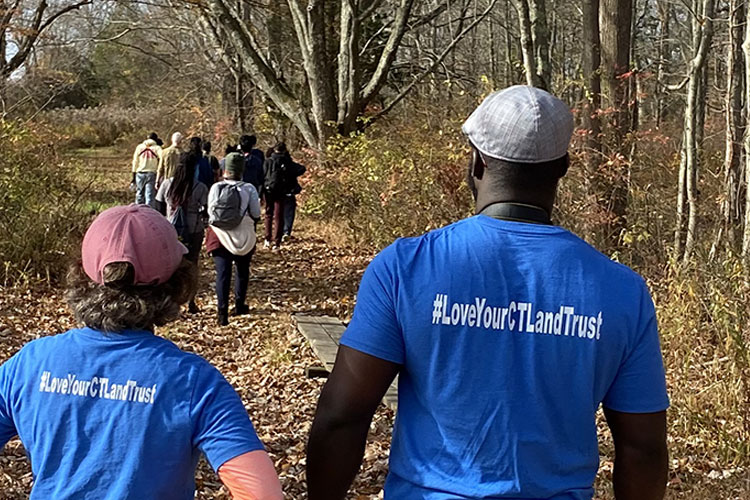2/13/24 – During our Summit on Land Use in Connecticut, many programs and funding opportunities were discussed as they became relevant to the conservation. These resources from each department provide opportunities for groups and individuals to achieve the goals of different land use projects. Programs mentioned include grant programs, tax credits, and strategic plans being made to help reach a diverse set of land use goals in the state. Also included are links to all panelist’s organizations and recordings from the full-day event.
11/15/23 – A panel of experts from the Connecticut Land Conservation Council, Northwest Connecticut Land Conservancy, Save the Sound, The Nature Conservancy, and the Housatonic Valley Association discussed a new report, Conserving Northwest Connecticut: Adaptive Strategies for Accelerating the Pace of Conservation. This webinar explored how you and your organization can use the report to inform your own strategic conservation planning and educate your constituents and stakeholders.
The Connecticut Land Conservation Council (CLCC) and the Connecticut Department of Energy and Environmental Protection (DEEP) hosted a series of one-hour, lunchtime Zoom discussions on state land conservation planning and open space grant funding programs.
The following resources were provided by Lisa Hayden (New England Forestry Foundation) and Andrea Urbano (CT DEEP) at the 2023 Connecticut Land Conservation Conference. This presentation explained emerging forest stewardship, urban forestry and land management practices that are being defined, implemented and monitored for their climate benefits in Connecticut and across New England.
May and early summer is the best time of year to recognize ericaceous and other shrub species – like blueberries, laurels, and arrowood – when they are in bloom. A preponderance of flowering native shrubs warrants a concerted effort to secure an alternate management regime for those areas – not frequent close mowing. We recommend marking the limits of the shrub patches, to make them easier to avoid. If photos of a blooming shrub, including a close-up of a flower and a few leaves, are posted on the CT Botanical Society Facebook page, we may well be able to help with identification.
2/1/23 – While land conservation and affordable housing are often pitted against one another as an “either/or” proposition, the reality is that Connecticut communities need both. Along with our program partners at Land Trust Alliance and the Trust for Public Land, this summit consisted of a full-day exploration of how housing and conservation groups can work together to achieve greater good. Discussions covered successful examples of collaboration, and how such efforts can lead to healthier, more equitable housing, to more land conservation in our communities, and to increased funding for joint projects.
Catch the recording from part one of this program Buildings, Offices, and HQs – What should your land trust consider?
Catch the recording from part two of this program Historic Buildings – A primer on historic preservation, restoration, designations, and funding.
CLCC and CT Farmland Trust hosted an online introduction to the FarmLink program, and how FarmLink can help match your land trust to a farmer who is interested in stewarding your agricultural lands. Topics discussed land and community benefits of leasing farmland, land trust considerations before leasing, and funding opportunities for your land trust.
CLCC’s Land Trust Board Member Boot Camp is a five-part series that covers the essential roles, functions, and responsibilities of land trust board members. The series is designed for those who are new to being on a board, new to land trusts, or are looking for a refresher course.
The Land Trust Alliance and CLCC collaborated to bring risk management support to your land trust, through the Connecticut Land Trust Risk Management Initiative.
11/5/21 – Writing the Land is a collaborative project between land trusts and artists to help raise awareness for the preservation of land, ecosystems, and biodiversity. The program helps poets “adopt” a conserved property, partnering them with a land trust for the calendar year.
Poets visit the properties and create poems inspired by the land. At the end of the year, the poems are published, with a chapter featuring each participating land trust.
